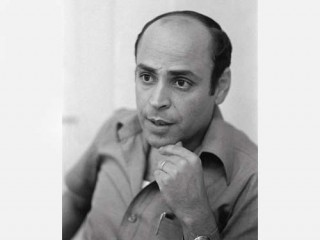
Abu Nidal biography
Date of birth : 1937-05-01
Date of death : 2002-07-16
Birthplace : Sabri al Banna in Jaffa, Palestine
Nationality : Palestinian
Category : Historian personalities
Last modified : 2010-04-29
Credited as : Political leader and terrorist, Fatah Revolutionary Council, hijacker and attacker
1 votes so far
Little is known for certain of his early life. He was born in Jaffa to a family of farmers and following the creation of Israel he grew up in Nablus. He became a school teacher before joining the Ba’ath party and then PLO in 1967.
In the 1970s and 1980s Abu Nidal and his organization planned and carried out attacks in the Middle East, Europe, and Asia while enjoying safe haven and support from several governments including Iraq, Libya and Syria. Operations attributed to the Abu Nidal Organization covered over twenty countries and 100 attacks including:
- the wounding of Israel’s ambassador to Britain, Shlomo Argov, in June 1982, which triggered Israel’s invasion of Lebanon;
- the hijacking of EgyptAir Flight 648 at Malta in November 1985, resolved when Egyptian commandos stormed the plane slaying the hijackers, with 58 of the 91 passengers also dying;
- the Rome and Vienna Airport Attacks on December 27, 1985, which left 20 people dead and 120 injured; the hijacking of Pan Am Flight 73 on September 6, 1986 in Karachi;
- a gun attack that left 22 people dead and six wounded inside the Neve Shalom synagogue in Istanbul during Sabbath services;
- a car bomb outside the Israeli embassy in Cyprus in 1988, which killed three people (and for which the organization claimed responsibility);
- the attack on the cruise ship City of Poros on July 11, 1988, which killed nine people and wounded 98.
It has been claimed that internal purges of his group resulted in over 150 deaths.
In the late 80s, the Bank of England discovered that the Abu Nidal Organization held numerous accounts with the Bank of Credit and Commerce International (BCCI), which was closed down by the Bank of England in 1991, mostly because of massive fraud but also in part because of its terrorist bank accounts. According to one former BCCI manager, Abu Nidal himself would visit London to shop, using the name Shakir Farhan, although British intelligence officials believe Shakir Farhan to be another of Abu Nidal’s lieutenants.
On August 19 2002 Abu Nidal was reported dead of gunshot wounds in his home in Baghdad. He was suffering from leukemia, and the Iraqi government has said he was also facing a charge of treason and was likely to be convicted. The cause of his death according to Iraq’s then Deputy Prime Minister Tariq Aziz was a self-inflicted gunshot wound. The London paper Al-Sharq al-Awsat states that there were multiple gunshots and the death was a homicide carried out by Iraqi intelligence agents.
He was essentially mercenary in his activities. Although his ideology included the formation of a Palestinian state containing all of Israel, his targets included not only Israelis but also moderate Palestinians. He was commonly regarded as “the world’s most dangerous terrorist” until the rise of Osama bin Laden’s Al-Qaeda movement.
The Fatah Revolutionary Council is not the same as the Palestinian organization Fatah.
















